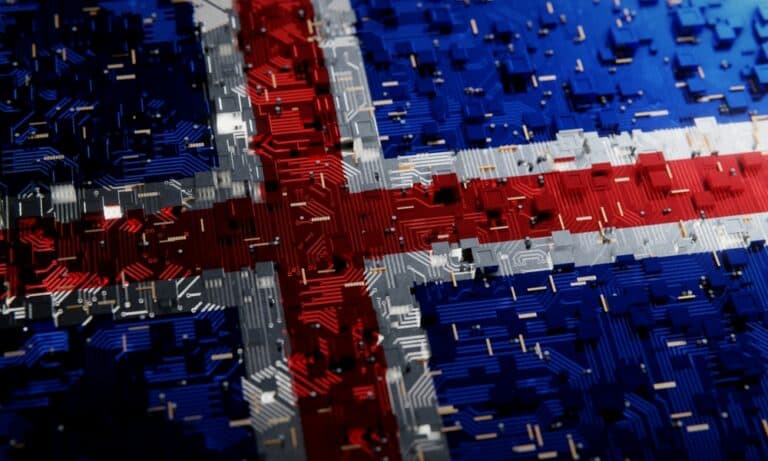The standard observation about Iceland is that it is at least 1,000km from everywhere. Add to that the fact it has a total population about one-third the size of Amsterdam, and it becomes easy to ignore. But as became clear last year, the country has some good things going for it, especially concerning IT.
Last year, the emphasis was on the country’s capabilities in providing data centre services, with a strong push to show its capabilities in providing a real advantage in compute-heavy applications. With its investments in high-capacity communications services and its obvious advantages in having huge volumes of low-carbon geothermal energy on tap, it is starting to pick off those applications and tasks where the frequency of communications is low and the density of expensive compute capabilities is high. And as we move into an era where businesses now have to account for the carbon footprint of their suppliers and themselves, that advantage is getting ever bigger.
Now, the country is looking to prove it has some application ideas in its own right and is using an organisational methodology that is gaining significant traction worldwide, but in the Nordic region in particular, to help make the best of its talent as fast as possible. That methodology is clustering. Indeed, Reykjavik was chosen to host this year’s conference of TCI, the global clustering authority and community.
The cluster approach is not new – for example, this was the 26th year the conference has been held – but it is starting to move beyond the perception of a rather quaint and parochial way of doing business, where being seen to do the right things is more important than creating profits, employment or economic growth. One of the drivers behind that view of clustering disappearing is the potential that is being generated by IT developments, particularly in the area of application development.
Fresh ideas spin off the application development process at an ever-increasing rate, so the idea of giving them some space to grow – rather than suppressing them to devote resources to an earlier objective – is well-matched to the clustering model. It is one that Iceland has taken up with enthusiasm, with Reykjavik City investing in the creation of a large and growing Science City supported by both the University of Iceland and Reykjavik University.
Known as Groska, this is a purpose-built environment home to some of Iceland’s bigger tech companies, but also has a floor where startups can start – where, it is often said, all you need is an IKEA desk and an idea. It is intended as an environment where innovation gets its best possible chances through a dynamic mix of entrepreneurs and professionals stirring each other up.
The growing success of Iceland’s work at clustering was one of the reasons the TCI conference came to town. One of the topics was how its natural self-sufficiency – growing its own economy, creating its own currency and fiscal management skills and developing many of the tools needed to manage these services helped make it a great target for clustering. However, the conference highlighted that more needs to be done, not just in Iceland but across the clustering community.
In particular, the need to build stronger links between companies and their customers is becoming apparent, and Iceland is becoming a leader in this area, especially in the technology sector. There is a need to build ecosystems around products and developments, and the customer has to be an integral part of this, not least because most of them are moving towards being driven by their missions, which the vendors need to understand almost as well as their own. The TCI position here is that this makes for a much more inclusive, collaborative way of working. This can also spread greater cross-fertilisation between clusters – both when technology or market sector led, and across national borders. Iceland, for example, sees itself as an integral part of a Nordic cluster that could even extend to include complementary clusters in the UK and the Benelux countries.
The TCI conference drew attention to the growing potential of such superclusters. This would certainly be a direction for the movement, which would answer the elephant in the room observation that, by their very nature, clusters tend towards the start-ups, which, by their very nature, in turn, find it difficult, if not impossible, to address the needs of large enterprises. It sees opportunities being developed in food processing and building materials and technology. IT and digitalisation generally are now seen as the next targets to address.
They are also targets where Iceland can claim to be showing potential leadership. Take blockchain, for example. It’s a technology starting to be used in a range of applications, but its most famous one – working with Bitcoin – has not really established it, if only because Bitcoin is seen as a very speculative investment rather an everyday necessity of a currency with which to grease the wheels of everyday living.
A new job for Blockchain
But this is exactly what one company from the Icelandic fintech cluster, Monerium, has managed to achieve. It has got Blockchain working as the management medium for person-to-person or business-to-business transfers of Europe’s all-important fiat currency, the Euro. And this is not just working in sandbox-protected trials in a Reykjavik software laboratory: this has now been formally approved by the EU for use in the real world of everyday money transfers.
Over the next 10 to 20 years, Monerium’s co-founder & CEO, Sveinn Valfells, expects to see most of the global commerce move on to blockchains when it comes to the provision and management of fiat currency movements. The advent of Web 3 means that a much faster, cheaper and more flexible way of exchanging value in any form is becoming available than is possible using today’s local, centralised and siloed Ledgers.
In operation, Monerium works in collaboration with a US partner, State Street Global Holdings. This provides users with an underwriting service, using segregated accounts, to ensure the money is available for any holdups. State Street has over $3.5 Trillion in assets behind it to provide the service with the level of liquidity Monerium requires to give users a degree of comfort that the transactions are safe.
The European Union has had a legal framework for issuing digital cash for over 20 years. But Monerium has become the first company authorised to issue digital cash using blockchains on Web 3. The European regulatory environment now also includes MiCA (the Markets in Crypto Assets regulatory framework), which Valfells indicated is something of a world leading development.
Valfells noted that the chair of the USA House Financial Services Committee had recently observed that MiCA puts Europe ahead of the game in Web 3. The US Congress is expected to vote on similar legislation in the foreseeable future, and he expects that this could open the way for Blockchain to be approved as the transfer medium for Dollar-based transactions.
He also claimed that Monerium’s technology is already ahead of the MiCA requirements, and is now only being held back by the under-representation of Europe, and the Euro in particular, in Web 3 developments. This would put the company in a strong position to take an early share of the Dollar transfers marketplace. It is believed that early-stage discussions with major US financial houses are taking place.
A lack of information about what is happening in countries like China makes Valfells reluctant to claim a world lead in this market, but it certainly seems possible.
One more long-term prediction he offers is that this development could have a massive impact on how foreign exchange transactions will be conducted, initially at the person-to-person level but ultimately on the institutional level, operating in real-time, 24/7. It could also remove trading friction and helps prices to establish themselves in global markets, allowing supply and demand to meet at the intersection usually referred to as the price right, making them more efficient.
It is now the time to DEI
The Iceland cluster is also breaking new ground in the business management sector, particularly the increasingly important human resources management sector of DEI (Diversity, Equality and Inclusion). This is an area of HR where there is still a lack of objective data on DEI on which HR departments can judge their own position or, more importantly, measure it.
The startup breaking this ground, Alda, is notable for another reason: it is one of the currently very few companies in the world founded by an all-women team and one of just 2% of such businesses in the world to have won VC backing. It even has another claim on rarity in that one of the founders, Sigyn Jónsdóttir, works as the Chief Technology Officer and has been responsible for developing the tools HR departments need to digitise DEI metrics.
That development is based on the founders’ combined 20 years’ experience of DEI and AI consulting. Face-to-face experience has now been digitised, which required creating new ways to collect the data and a platform on which to run an AI system designed to identify and counter the deep biases around DEI.
The goal is to help those business managers – right up to C-Level – who are not women, not from the LGBT community, or not disabled, understand the issues of employing such people, including the positive and negative impact they have on business.
For example, that data can show how and why a business is not working as well as it might. From a business perspective, there is growing competition to attract the right staff, at a time when a tech-savvy and socially aware younger generation is coming through. They want to know what companies are doing to create work environments where everyone thrives and where the best technologies are being used to get the best work out of everyone. Failures here now become public discussion points for companies, leading to brand damage created by scandals about employment conditions. New staff may then look elsewhere, while customers may cease to support such companies.
That business culture is often driven by those hidden and implicit biases that need to be made conscious, and Alta is now part of a four-year EU-funded project setting out to identify and address such biases, with Jónsdóttir leading its contribution.
Also read: The Icemen And The Data Centers


